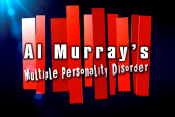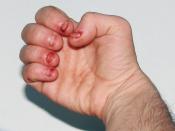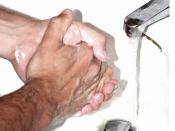PATHOLOGY AND THERAPY
Medical Model of Abnormal Behavior
Abnormal behavior is viewed as a disease
Diagnosis - distinguishing one illness from another
Etiology - how the illness is caused and how it develops
Prognosis - a forecast about what course the illness is likely to take
Criteria of Abnormal Behavior
Deviance
Maladaptive behavior
Personal distress
Defining Neurosis and Psychosis
Neurosis - characterized by anxiety, often as a result of inner conflict. The outward signs of anxiety may be hidden, however, as the person uses ego defenses to keep the anxiety under control. The person remains in good contact with reality (no irrational thought, delusions, or hallucinations).
Psychosis - characterized by a loss of contact with reality. The person may be delusional, have irrational beliefs that conflict with common sense, or suffer hallucinations. Although anxiety may be present (or not), it is not a characteristic of the disorder.
ANXIETY DISORDERS
caused by a combination of biological and environmental factors and may develop from a complex set of risk factors, including genetics, brain chemistry, personality, and life events
psychotherapy, cognitive-behavioral therapy, and medication therapy are effective treatments
Generalized Anxiety Disorder
Characterized by excessive, unrealistic worry that lasts six months or more
Other symptoms include trembling, muscular aches, insomnia, abdominal upsets, dizziness, and irritability.
Panic Disorder
Characterized by severe attacks of panic-which may make them feel like they are having a heart attack or are going crazy-for no apparent reason.
with either the continued concern about having more panic attacks, worry about the consequences (physical or psychological) or undergoing a change in behavior or routine due to the panic attacks.
Symptoms include heart palpitations, chest pain or discomfort, sweating, trembling, tingling sensations, feeling of choking, fear of dying, fear of losing control, and feelings of unreality.
Agoraphobia (which sometimes accompanies a panic attack)...


